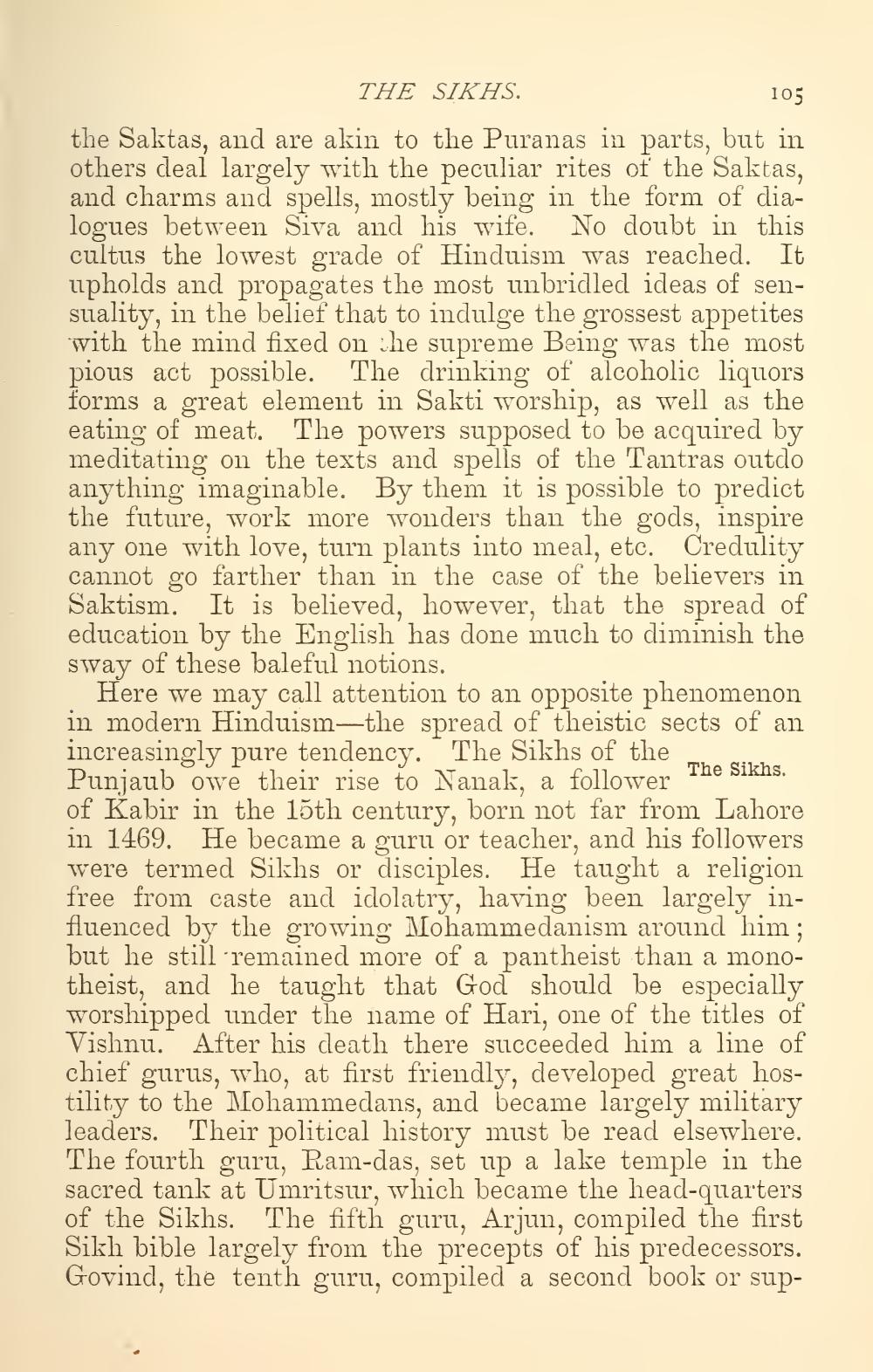________________
THE SIKHS.
105 the Saktas, and are akin to the Puranas in parts, but in others deal largely with the peculiar rites of the Saktas, and charms and spells, mostly being in the form of dialogues between Siva and his wife. No doubt in this cultus the lowest grade of Hinduism was reached. It upholds and propagates the most unbridled ideas of sensuality, in the belief that to indulge the grossest appetites with the mind fixed on che supreme Being was the most pious act possible. The drinking of alcoholic liquors forms a great element in Sakti worship, as well as the eating of meat. The powers supposed to be acquired by meditating on the texts and spells of the Tantras outdo anything imaginable. By them it is possible to predict the future, work more wonders than the gods, inspire any one with love, turn plants into meal, etc. Credulity cannot go farther than in the case of the believers in Saktism. It is believed, however, that the spread of education by the English has done much to diminish the sway of these baleful notions.
Here we may call attention to an opposite phenomenon in modern Hinduism—the spread of theistic sects of an increasingly pure tendency. The Sikhs of the Punjaub owe their rise to Nanak, a follower The Sikhs. of Kabir in the 15th century, born not far from Lahore in 1469. He became a guru or teacher, and his followers were termed Sikhs or disciples. He taught a religion free from caste and idolatry, having been largely influenced by the growing Mohammedanism around him ; but he still remained more of a pantheist than a monotheist, and he taught that God should be especially worshipped under the name of Hari, one of the titles of Vishnu. After his death there succeeded him a line of chief gurus, who, at first friendly, developed great hostility to the Mohammedans, and became largely military leaders. Their political history must be read elsewhere. The fourth guru, Ram-das, set up a lake temple in the sacred tank at Umritsur, which became the head-quarters of the Sikhs. The fifth guru, Arjun, compiled the first Sikh bible largely from the precepts of his predecessors. Govind, the tenth guru, compiled a second book or sup




